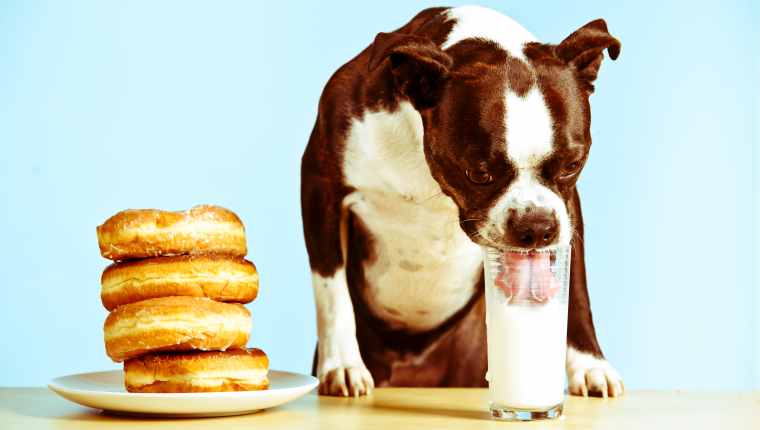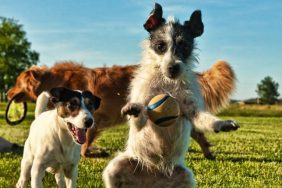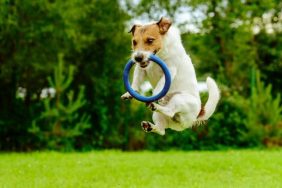Milk and dairy products can have great benefits for humans. They’re rich in vitamin D and calcium, which can help keep your teeth and bones nice and strong. But can our beloved pooches have milk, too?
When it comes to whether dogs can have milk, the quick answer is that it depends. Most of the time, a little bit of milk isn’t going to be harmful or toxic. But there are exceptions, and dogs can face several health issues if they drink milk or eat dairy products in high quantities or over a long period of time.
As always, you must ask your veterinarian before sharing human foods or drinks with your dog, including milk. Here’s what you should know about whether dogs can drink milk.
Can Dogs Safely Drink Milk?
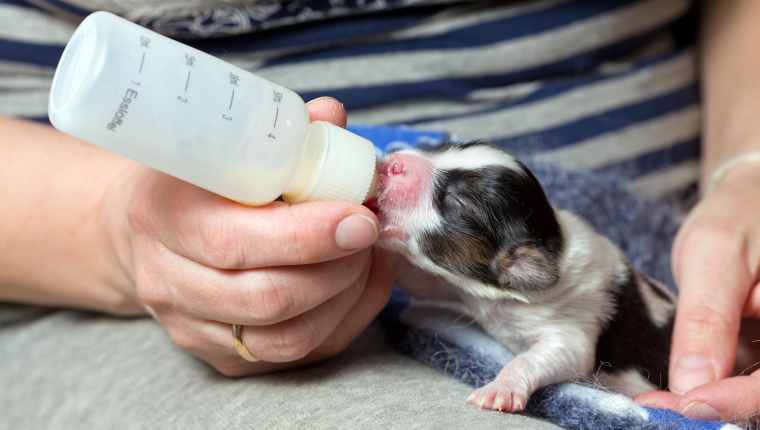
Dr. Stephanie Liff, DVM and owner of Pure Paws Veterinary Care of Clinton Hill in Brooklyn, NY said about the subject of dogs and milk, “Most dogs can drink cow’s milk or goat’s milk, however some dogs may be allergic or lactose intolerant.”
Dr. Heather Brausa at New York City’s Animal Medical Center also stated, “It’s the consequence of that milk drinking that we worry about.”
“Milk contains a sugar called lactose that requires an enzyme called lactase for digestion,” Brausa says. “Puppies generally have the enzyme in abundance as it is used to break down their mother’s milk while nursing.”
As puppies become weaned, or introduced to more adult foods, they’ll produce less lactase in their system, and that, in fact, is when they can become lactose intolerant.
What Can Happen If Your Dog Drinks Milk?
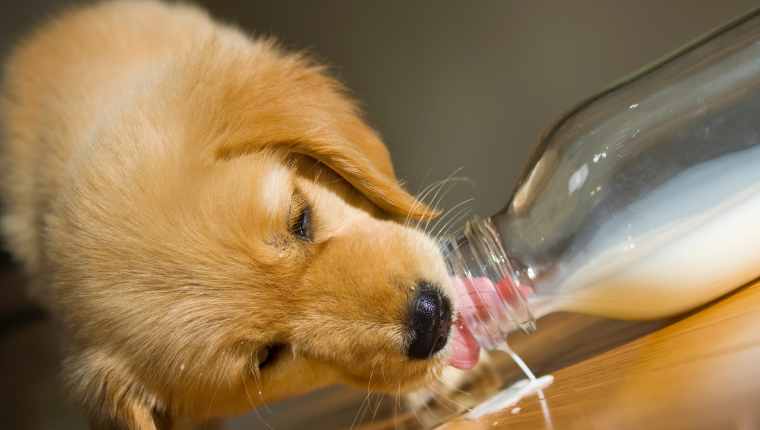
Though drinking milk is not toxic for your dog, it can produce a lot of significant problems down the road. Many dogs are lactose intolerant to some degree, which means they have a difficult time digesting dairy products.
Some of the symptoms of lactose intolerance after exposure to dairy products are:
- Loose stools
- Bloating
- Constant gas/flatulence
- Vomiting
- Abdominal pain
- Diarrhea
Dr. Liff adds, “Due to deficient levels of lactase, milk ingestion can lead to GI upset including diarrhea and vomiting. Additionally, whole milk or other dairy products may contain too much fat and can lead to diarrhea and vomiting too.”
Because of the high fat content of most dairy products, especially whole milk, consumption can lead to pancreatitis for your dog, which is a highly serious condition.
While an occasional lick of ice cream or lap of milk may not be a big deal for your dog, you should avoid dairy products as much as possible or at least only allow it in moderation. Generally, dogs can experience gastrointestinal upset some time within about twelve hours of drinking or eating milk products.
Always consult with your dog’s vet to make sure your pup isn’t allergic to dairy products or lactose intolerant and that it will not cause them any serious pain or discomfort.
Do you ever let your dog drink milk or eat dairy products? How do they feel afterward? Let us know in the comments below!
